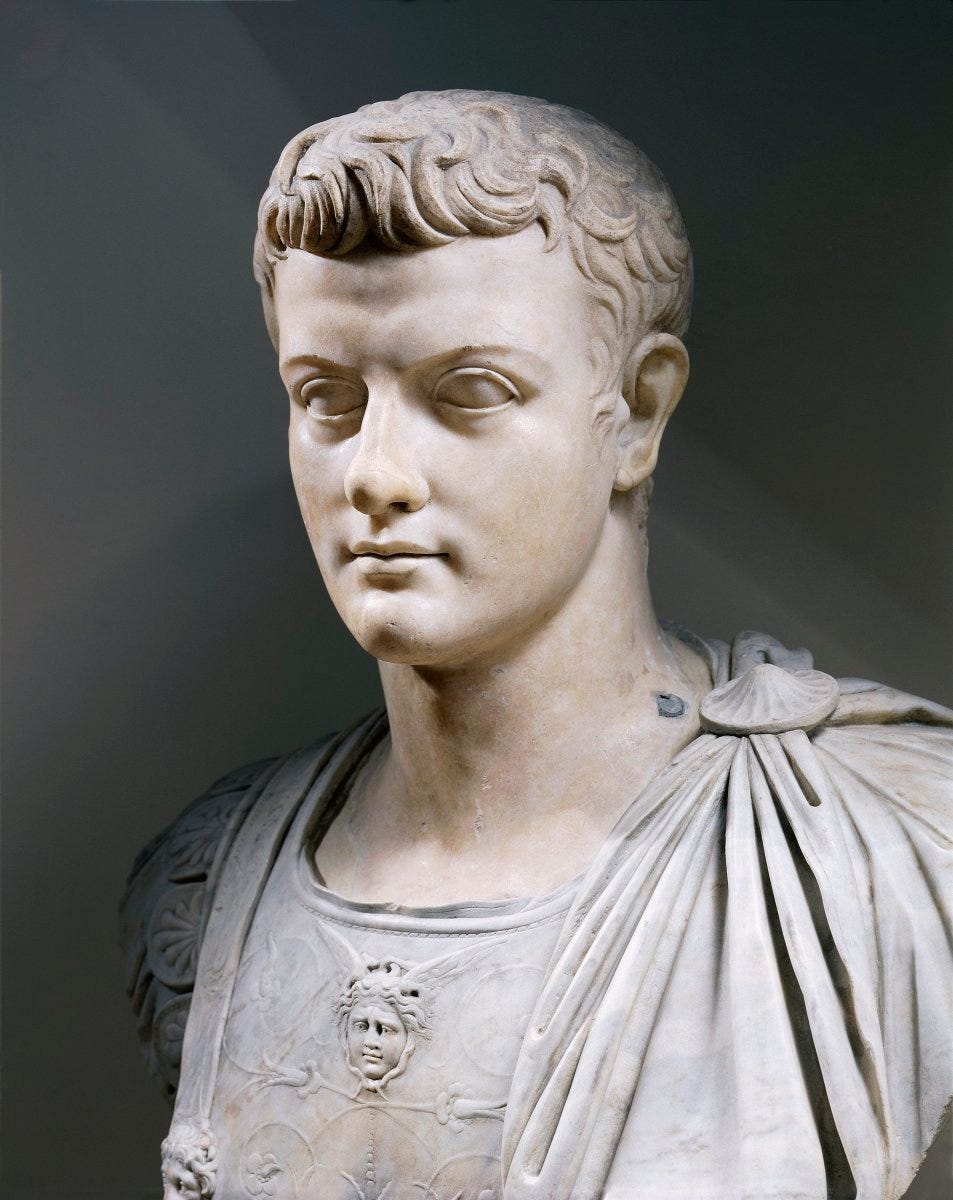Quote of the day #6
The Judaean embassy pleads its case to Caligula, chief justice of the EXTREME COURT. In response, Caligula does a little interior design.
In preparing a digression on apologia from the Why We Remain Blacks series, I came upon the following humorous anecdote from Philo of Alexandria, a Judaean philosopher from Alexandria.
The anecdote is told in the context of Philo’s embassy to Caligula, the purpose of which was to convince the emperor to moderate his position on Judaeans and forego his plan to erect an image of himself in the Temple at Jerusalem.
During their audience with the emperor, Caligula informs the Judaean embassy:
“I desire to know what principles of justice you recognise with regard to your constitution.”
The embassy begins to respond in earnest, only to be thwarted by the eccentric emperor’s interest in interior design:
And when we began to reply to him and to explain it, he, as soon as he had a taste of our pleading on the principles of justice, and as soon as he perceived that our arguments were not contemptible, before we could bring forward the more important things which we had to say, cut us short and ran forward and burst into the principal building, and as soon as he had entered he commanded the windows which were around it to be filled up with the transparent pebbles very much resembling white crystal which do not hinder the light, but which keep out the wind and the heat of the sun. (365) Then proceeding on deliberately he asked in a more moderate tone, "What are you saying?" And when we began to connect our reply with what we had said before, he again ran on and went into another house, in which he had commanded some ancient and admirable pictures to be placed. (366) But when our pleadings on behalf of justice were thus broken up, and cut short, and interrupted, and crushed as one may almost say, we, being wearied and exhausted, and having no strength left in us, but being in continual expectation of nothing else than death, could not longer keep our hearts as they had been, but in our agony we took refuge in supplications to the one true God, praying him to check the wrath of this falsely called god. (367) And he took compassion on us, and turned his mind to pity. And he becoming pacified merely said, "These men do not appear to me to be wicked so much as unfortunate and foolish, in not believing that I have been endowed with the nature of God;" and so he dismissed us, and commanded us to depart.”
Is it possible that Philo was unfamiliar with glass?
Source: https://www.earlyjewishwritings.com/text/philo/book40.html




Chad emperor: “obscurantism, dusty old pictures”
Virgin Judeans: “offended!”
Nothing new under the sun.
A god-like man versus a man-like God. An apples and pears comparison like my old man used to say. Caligula didn't wait long enough to find out that justice so eloquently described in perfect Latin was only applicable to the in-group (at that time, ho ho).